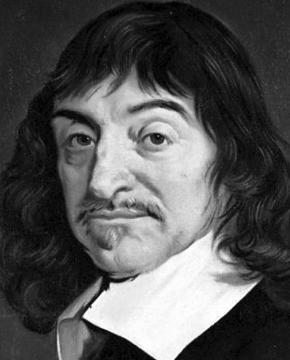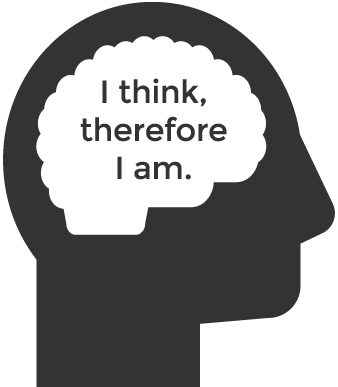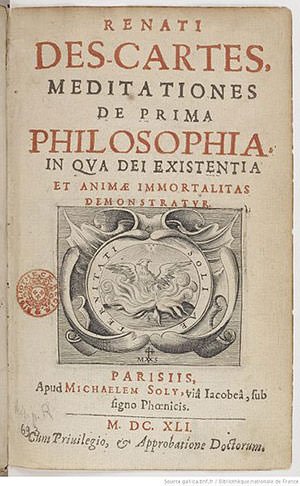René Descartes is widely considered to be the father of modern Western philosophy and one of the greatest minds in history. His contributions to the fields of mathematics, physics, and philosophy have had a lasting impact on the world and continue to be studied and debated to this day.
One of Descartes' most notable accomplishments was the development of the Cartesian coordinate system, which is named after him. This system is a way of representing points in space using two or three numbers, and it is the basis for much of modern geometry and algebra. The Cartesian coordinate system allowed for the development of calculus, which is a branch of mathematics that deals with rates of change and the behavior of functions. Calculus has had a major impact on the fields of science and engineering and is used to solve many complex problems.
Another significant contribution made by Descartes was his development of the scientific method, which is a systematic approach to solving problems and acquiring new knowledge. Descartes believed that the scientific method should be based on reason and logical argument, and that it should involve the collection of data through observation and experimentation. He argued that scientific theories should be tested and refined through the use of rigorous methods and that the pursuit of truth should be guided by the principle of doubt.
In the field of philosophy, Descartes is perhaps best known for his concept of "cogito, ergo sum," which means "I think, therefore I am." This idea is the foundation of his philosophy of dualism, which posits that the mind and body are separate entities that interact with each other. Descartes believed that the mind was a non-physical substance that was capable of abstract thought and that the body was a physical entity that was subject to the laws of nature.
Descartes' philosophy had a major influence on the development of modern Western thought and continues to be studied and debated by philosophers today. His ideas about the nature of reality and the relationship between the mind and body have had a lasting impact on the fields of psychology, neuroscience, and artificial intelligence.
In conclusion, René Descartes was a pioneering thinker who made significant contributions to the fields of mathematics, physics, and philosophy. His development of the Cartesian coordinate system and the scientific method have had a lasting impact on the world and continue to be studied and applied to this day. His ideas about the nature of reality and the relationship between the mind and body have also had a profound influence on the development of modern Western thought and continue to be explored and debated by philosophers today.
What was Rene' Descartes accomplishments?

Descartes himself argued from his ability clearly and distinctly to conceive mind and body as distinct beings to the conclusion that they really are separate substances. Indeed, Descartes claimed that he could explain these qualities themselves through matter in motion 11:26 , a claim that he repeated in the Meteorology 6:235—6. Ben-Yami, Descartes' Philosophical Revolution: A Reassessment, Palgrave Macmillan, 2015, p. Though his metaphysics is rationalistic see see see mechanism. Early Modern French Thought: The Age of Suspicion. The mind is not. More generally, Copernicus had, in the previous century, offered a forceful argument for believing that the sun, not the earth, is at the center of the solar system.
René Descartes: History & Most Notable Achievements

Physiologia: Natural Philosophy in Late Aristotelian and Cartesian Thought. There is some support for this position in the Second Replies. Descartes: His Life and Thought, trans. These mechanistic explanations extended, then, not merely to nutrition, growth, and reproduction, but also to the functions of the external and internal senses, including the ability of nonhuman animals to respond via their sense organs in a situationally appropriate manner: to approach things that are beneficial to their body including food and to avoid danger as the sheep avoids the wolf. To Descartes, Aristotle's Initially, Descartes arrives at only a single first principle that he thinks. Year Manuscript Description 1618 Musicae Compendium Music theory and the aesthetics of music. Without the coordinate planes dimensional modeling would be impossible to replicate perfectly.
Rene Descartes Accomplishments Flashcards

René Descartes, born March 31, 1596, La Haye, Touraine, France—died Feb. Math and mathematicians: the history of math discoveries around the world. When challenged that he had not established the immortality of the soul merely in showing that the soul and the body are distinct substances, he replied, "I do not take it upon myself to try to use the power of human reason to settle any of those matters which depend on the free will of God. He did, however, have a brief affair with a servant named Helena Jans van der Strom, which resulted in the birth of his daughter, Francine. Descartes "invented the convention of representing unknowns in equations by x, y, and z, and knowns by a, b, and c".
Rene Descartes as a mathematician and philosopher

Cambridge, England: Cambridge University Press. Cottingham, Oxford: Clarendon Press, 1989. Retrieved 7 April 2014. Descartes was known among the learned in his day as a top mathematician, as the developer of a new and comprehensive physics or theory of nature including living things , and as the proposer of a new metaphysics. His most significant achievement was the use of algebraic formulas to describe geometric figures, which formed a branch of mathematics known as analytical geometry. He then had a daughter named Francine, whom was born of a servant Helena. Similarly, any act of will present in an intellectual substance also is available to consciousness, because it is of the essence of such a substance to perceive its own states 11:343.






